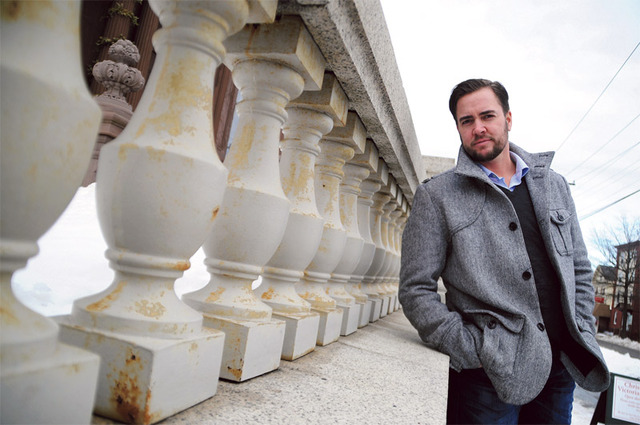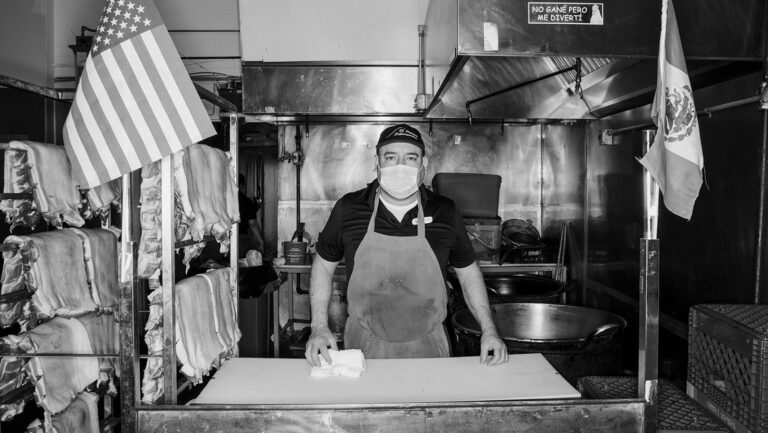Ian Harvie is living proof that comedy and catharsis go hand in hand. Billed as the world’s first female-to-male transgender comic, Harvie routinely uses his experiences with discovering gender identity as the basis of his stand-up act. He might be riffing on the nipple sensation in his armpits due to a chest reduction surgery. Or he might be talking about how people mistake him for "the lost fucking member of Wham!" Harvie’s humor is hilariously raunchy, but it’s also too sincere and well-intentioned to be deemed self-deprecating.His career took off about six years ago when he moved from his native Portland, Maine, to L.A. There he met Margaret Cho. The famed comedienne used him as an opener for her act, and they toured together for two and a half years. Harvie has since hosted his own talk show and successfully embarked on a career as a headliner in his own right. At the moment, he’s organizing the Maine Comedy Fest, an event he created last year. (Cho is headlining in 2012.) The Alibi caught up with Harvie in advance of Laughter Links Us Together, the Albuquerque Pride comedy show, which he’ll be starring in on Saturday, June 9, alongside his friend Jason Dudey and Southwest FunnyFest founder Dana Goldberg. How does gender identity play into the type of audience you attract? Whoever you are as a comic, you have a perspective and that perspective is your identity. So if you’re Margaret [Cho] you’re probably queer, feminist, political, dirty. If you’re Jerry Seinfeld, you’re talking about everyday events—which, you know, he admits and Larry David admits the comedy and the show was a lot about nothing. Even that’s people’s identity. And each of those perspectives draws a certain kind of audience. The people who are probably the most interested in me are probably queer, liberal—they’re not all gender-variant, but they have an interest in gender. Generally you’ll draw the people who have an interest in what your perspective is. So if you are part of the redneck comedy tour, you’re gonna draw rednecks—that’s your perspective and that’s your identity. And that’s why comedy’s so great and so different, in that we all draw different kinds of people. You’ve referred to yourself as an identity collector—could you expand on that? When I was 19, I came out into the queer community—you know, a female body, physically female, [but] very masculine. I came out to a lesbian community, like the dike community. And twentysomething years later, I came out again and learned something more about myself, that I figured out I was transgender and that I was a man. But I didn’t give up my butch identity or my "butchininity" to become trans. I didn’t leave that history behind. I didn’t just drop this other thing and pick up this new thing. You know, I’m queer, I’m butch, I’m trans, I’m a man, I’m female. There’s a lot of things that I am. And I don’t necessarily feel for me—and this is not the same for everybody—that I have to give up one to accept another as part of my identity. I guess ultimately for me that just means that I’m embracing my history. I don’t resent that I was born female, I don’t resent that I was raised and socialized a girl, I don’t resent any of the things that have happened in my life, and I embrace all of it and it’s all still part of me. You’ve said you felt uncomfortable in your own skin prior to getting chest surgery in 2008. Before that transformation, did comedy play into your ability to cope with that feeling of discomfort? Absolutely. I transitioned on stage. I was going through it emotionally, like it was at the forefront. So it was hard to not talk about it on stage and hard to not be processing some of that on stage, you know, in a mild to moderately therapeutic way that maybe the audience wasn’t really aware of. The stage can be sort of a pulpit, but it also can be like a couch in your therapist’s office. I do talk about a lot of stuff today where parts of it is very real for me. So if you hear me talking about what "the girls" were like on my chest before surgery and things like that. … Of course I would have made it through it without comedy—being on stage—but I don’t think I would have made it through it without a sense of humor. And I think that’s one of the things for me that’s very healing. It’s healing to be able to laugh about something that ultimately often feels like it’s torturing you. What will you be bringing to Albuquerque? I have some good dick jokes lined up—the trans version of dick jokes, as anybody should have a good dick joke lined up. … By the end of my set I think everybody in the room will be doing a couple of things—one: thinking, hopefully, That was funny—but ultimately that their feelings about their bodies, in a general way, are really not that different. Like we’re all a little bit trans. No one feels 100 percent OK about their bodies, no one does. … I’m going to hopefully make everybody feel like family at the end because of our shared experience. That, and laugh their ass off. I’ll talk about the restroom, I’ll talk about my chest surgery, I’ll talk about stuff about my relationships and talk about my family. I love to talk about how my family all took it and how my mom still calls me by my birth name out in public and she looks like a crazy lady. So it’ll be lots of different things, but the core will just sort of be that we’re all family. Speaking of restrooms, I’ve heard you have a phobia of public ones. Well, I’m always afraid that I’m going to be found out. I’m always afraid that my trans-ness is going to be visible in the bathroom somehow, like maybe my pee’s going to sound different than his pee next to me or something. I’m always nervous. And the whole time I’m in there, I’m just in the stall rocking back and forth like, I’ve got a secret . I’m just trying to figure out what my defense would be. I don’t know what I would do if I were found out. It’s funny, but also it’s scary, because there’s people out there who for some reason want to kill people like me and my trans sisters and that’s crazy to me. But there are people out there that are that crazy phobic and you don’t know where you’re gonna run into them. But I don’t know what my defense would be. It would be like, “You wouldn’t hit a dude with a vagina would you?" And then you know, I’d run hopefully, confusing them long enough to get the hell out of there.










